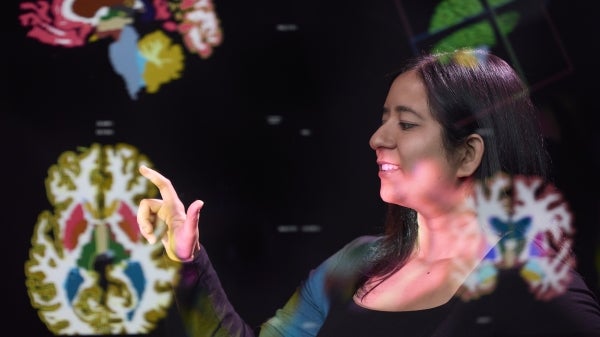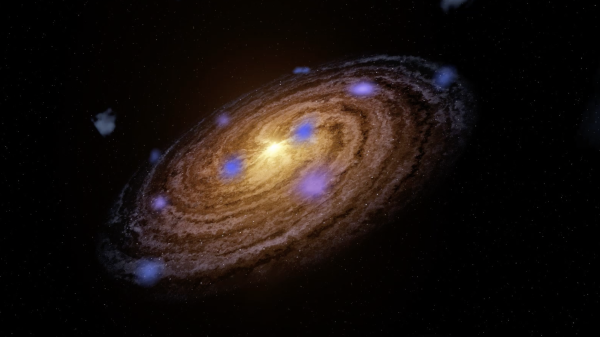The Interplanetary Initiative at Arizona State University and the Translational Research Institute for Space Health (TRISH) are launching a monthly discussion series examining interplanetary exploration through conversations with diverse experts optimistically answering the question, “Why do humans go to space?” The four-part virtual series dives into the philosophy and passions behind the desire to travel into deep space.
Series One, scheduled for April 22, features Emily Thomas, bestselling author of “The Meaning of Travel: Philosophers Abroad,” and retired NASA astronaut Nicole Stott, moderated by Dorit Donoviel, director of TRISH.
“Humanity’s interest in space has grown exponentially since NASA’s ‘giant leap for mankind’ in 1969,” Donoviel said. “While commercial spaceflight companies are busy making the space near Earth more accessible to regular people, NASA and its international partners have set their sights on deep space. First the moon, then Mars. What will it mean for humanity to truly become an interplanetary species? We’re thrilled to collaborate with the ASU Interplanetary Initiative as we journey through conversations that will explore the relationships between exploration, medicine, discovery, science, travel and the humanities.”
"Humans are going to explore space,” said Lindy Elkins-Tanton, vice president of the ASU Interplanetary Initiative and principal investigator of the Psyche mission. “It's in our genes to explore. And space gives us an opportunity to do better at exploration than we have in the past — to include all peoples, to think about governance more clearly, to tie all we learn into Earth's own future. We want to illuminate these motivations and the paths ahead."
The monthly series launches in April and will continue with more thought-provoking conversations through the summer, including “Why is Going to Space so Difficult for Humans?” on May 20.
Get more information about the ‘Why We Go’ series and register for the first discussion.
This story was written by Kristen Quinn representing the Translational Research Institute for Space Health with contributions from ASU’s Interplanetary Initiative.
More Science and technology

Podcast explores the future in a rapidly evolving world
What will it mean to be human in the future? Who owns data and who owns us? Can machines think?These are some of the questions…

New NIH-funded program will train ASU students for the future of AI-powered medicine
The medical sector is increasingly exploring the use of artificial intelligence, or AI, to make health care more affordable and…

Cosmic clues: Metal-poor regions unveil potential method for galaxy growth
For decades, astronomers have analyzed data from space and ground telescopes to learn more about galaxies in the universe.…
